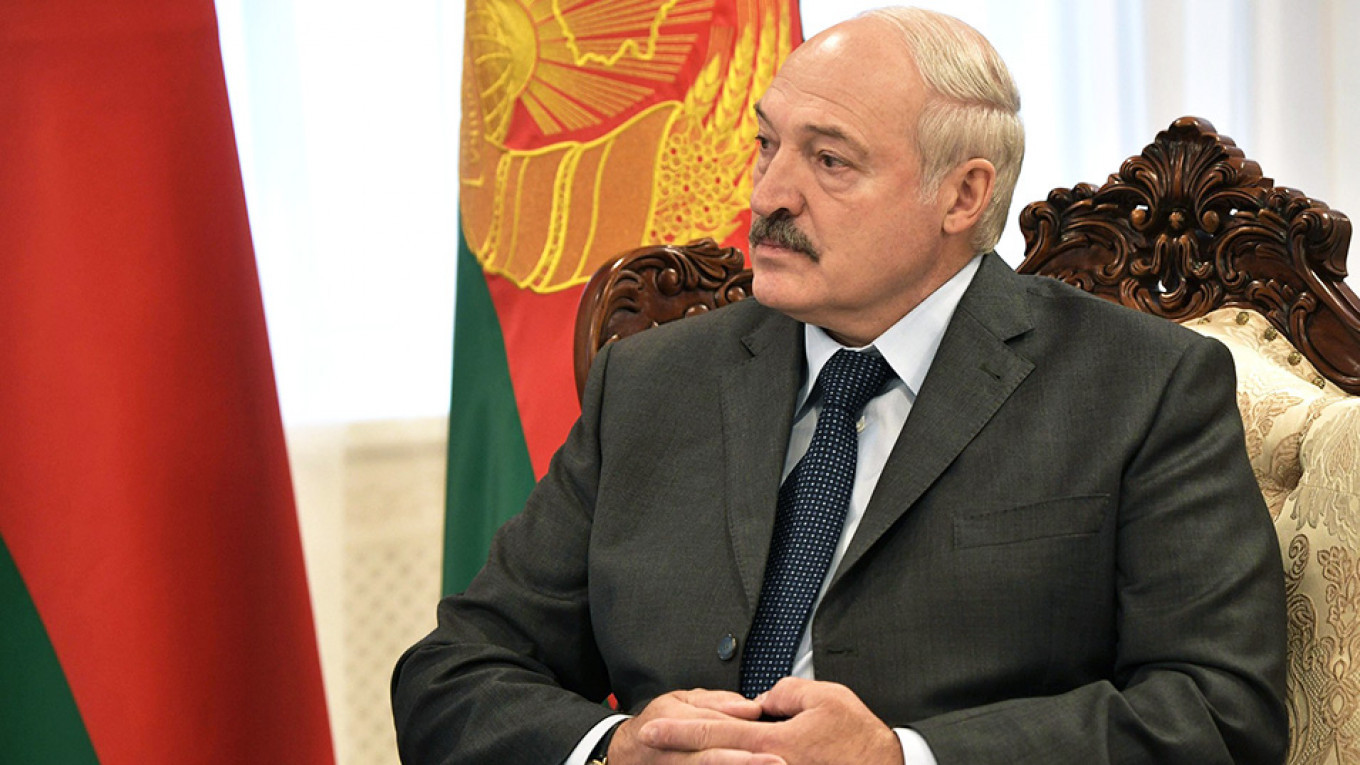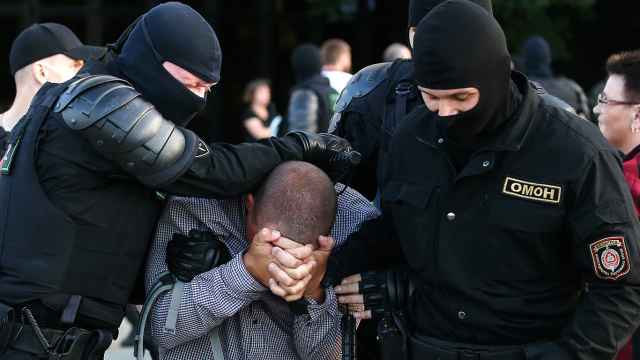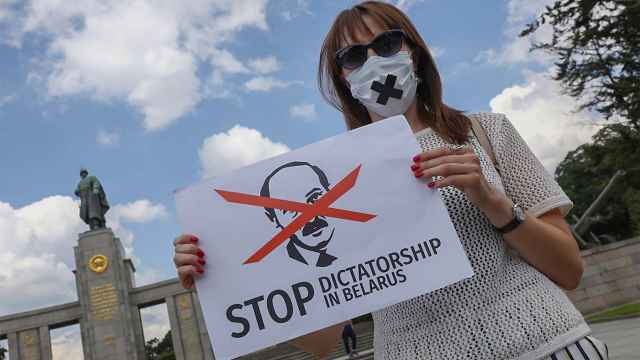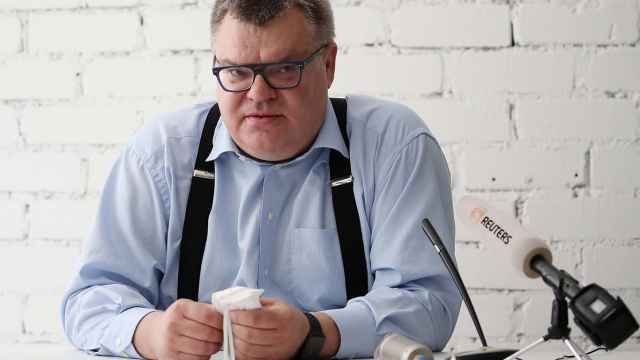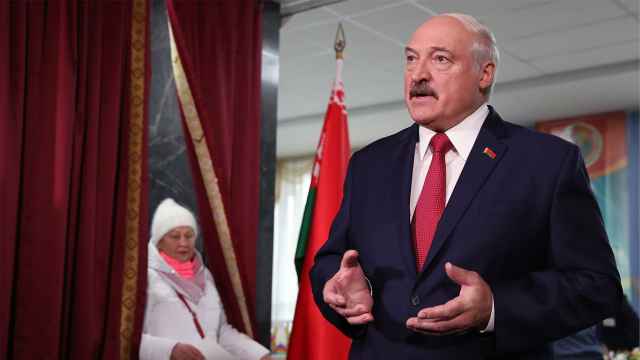Belarus President Alexander Lukashenko on Thursday accused Russia and Poland of interfering in the upcoming presidential election, claims that were quickly denied by the Kremlin.
The interference is coming from "those who live in Poland and those who incite from Russia," Lukashenko said at a meeting with newly appointed government officials.
Lukashenko said he would discuss the issue with Russian President Vladimir Putin at a meeting in the near future but cautioned that the situation remained "extremely difficult."
The strongman leader of authoritarian ex-Soviet Belarus is seeking his sixth term as president in the election scheduled for August 9.
Many of his critics have been jailed in recent weeks and opposition figures who enjoy robust support from the public have fought hard to get on the ballot, observers say.
Lukashenko, who just Wednesday was in Moscow, said there are "horrific fakes" being spread about him, some in Russian anonymous social media accounts.
"It's not ours, the information is coming from Russia," he said.
"There are the most modern false technologies being used, there is interference from abroad into our elections, our domestic affairs."
The Kremlin flatly denied allegations it was meddling in the ballot, saying it did not interfere in election campaigns in other countries, particularly close allies.
Russia "isn't meddling, and isn't going to meddle in the electoral processes of any country, let alone those under way in our ally, Belarus," Kremlin spokesman Dmitry Peskov told reporters.
'Pure propaganda'
Lukashenko's main election rival Viktor Babaryko was arrested this month on suspicion of committing financial crimes and the next day the president announced his government had foiled a foreign plot to stage a popular uprising in Belarus.
"Obviously, puppeteers are behind them," Lukashenko said of his political opponents. "They are from both sides. They contribute from Poland and from Russia."
Deputy head of the opposition BNF party, Alexei Yanukevych, called the accusations of foreign interference "pure propaganda to discredit the opposition," done in the Kremlin style.
"If Russia is really trying to interfere, why not fight Russia, why fight Belarussian society?" he told AFP.
The run-up to the vote has seen a flurry of opposition activity which has stood in stark contrast to the incumbent's traditional Soviet approach to campaigning.
The Organization for Security and Co-operation in Europe, an international election and war monitor, has not recognized any polls in Belarus as free and fair since 1995.
Nikolai Kozlov, who leads the oppositional United Civic Party, said Russia has interfered in Belarus elections in the past and "always on the side of Lukashenko."
"It's difficult to say what Russia's position is now," he told AFP. "Clearly people are ready to vote for anybody but Lukashenko."
Lukashenko visited Moscow this week to participate in a military parade to mark 75 years since the Soviet Union's defeat over Nazi Germany.
Russia and Belarus have long had close trade and military cooperation, but the Kremlin has called for deeper integration while Lukashenko has opposed outright unification.
A Message from The Moscow Times:
Dear readers,
We are facing unprecedented challenges. Russia's Prosecutor General's Office has designated The Moscow Times as an "undesirable" organization, criminalizing our work and putting our staff at risk of prosecution. This follows our earlier unjust labeling as a "foreign agent."
These actions are direct attempts to silence independent journalism in Russia. The authorities claim our work "discredits the decisions of the Russian leadership." We see things differently: we strive to provide accurate, unbiased reporting on Russia.
We, the journalists of The Moscow Times, refuse to be silenced. But to continue our work, we need your help.
Your support, no matter how small, makes a world of difference. If you can, please support us monthly starting from just $2. It's quick to set up, and every contribution makes a significant impact.
By supporting The Moscow Times, you're defending open, independent journalism in the face of repression. Thank you for standing with us.
Remind me later.


